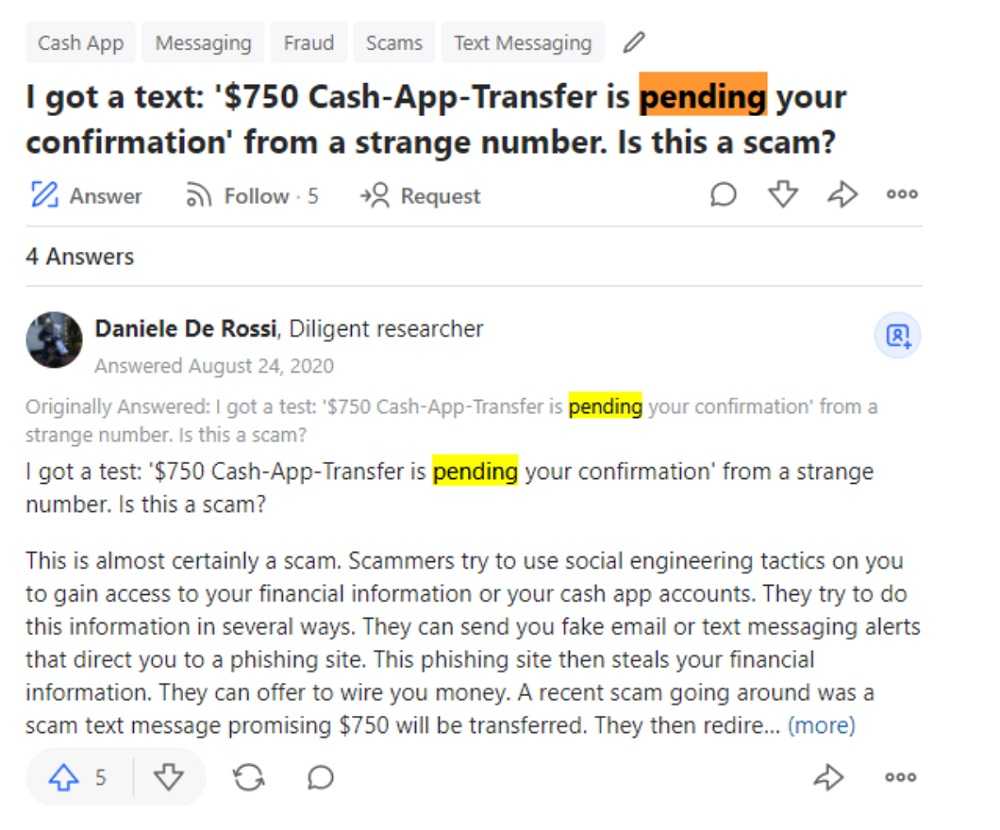That $750 you were promised for filling out a survey was never intended to be paid but is in fact a giveaway scam you just fell for. You may think there’s no real harm in filling out a bogus survey, but the real thing about these scams is that it’s stealing your PII (personally identifiable information). The enduring and timeless nature of scam giveaways show that, people don’t change much when it comes to getting something for nothing.
Now that these scams are online, bigger hauls from victims have no real end in sight. Social media, in particular Facebook and Instagram, are swimming with giveaway scams. This particular scam uses social media sites to proliferate, promising $750 in Cash App rewards for filling out a brief survey – an attention getting but bogus headline. The ads have also been seen on Facebook groups and in WhatsApp. According to Snopes fact-checkers, this scam goes back to May, 2021.

Those of us taking on the free $750 offer always lose to the rip-off scammers who create the con, so they always win. This survey usually appears via Google Docs or pages on sites.google.com, and the willing gladly provide their PII for the survey. With your PII, scammers can pull-off identity theft and fraud, steal banking and social media accounts, launch phishing attacks, and more. The lesson learned is that it’s usually best to run fast and far from anything or anyone offering something for “free.”
Since human nature won’t be changing anytime soon, the best defense against free giveaway scams is a smart offense. Below are tips from the Better Business Bureau (BBB) to help avoid becoming the next victim of a social media “free giveaway” scam.
 Do your research. A simple online search can expose the scammer, the scam, and how they both work
Do your research. A simple online search can expose the scammer, the scam, and how they both work
Keep it real by using common sense. Would anyone give away something of value for free? Not at all likely, especially when you give them your PII upfront
Never share your PII, especially when someone you don’t know asks for it. In a scammer’s hands, that PII can be used or sold for other scams and cybercrimes
Resist pressure to act quickly. High-pressure tactics work only for the person applying them, so don’t let them get the best of you before you have a chance to think it over.
Don’t click on links or open attachments, especially from senders you don’t know. Links can go to fake websites that steal your PII, and attachments can be malware-filled.